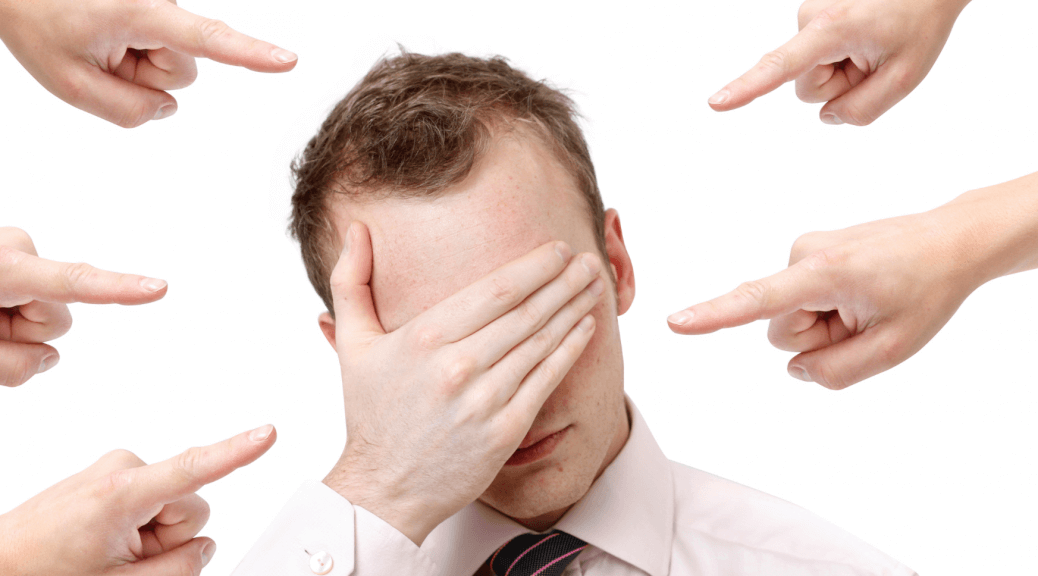
Social Pressure
Social Pressure: The Force Behind Societies
This girl falls pretty hard at a ballet concert and hits her head on the floor, but although we can see that she felt pain (perhaps quite a lot), she quickly went back to ‘perform’ the dance.
[ytp_video source=”CuqQzPZsb6s”]
This is something we may not pay that much attention to, but I think we are missing an important ‘force’ that holds societies together, and that is the “social pressure”. Trends in fashion, jokes, what is gruesome, normal, what are the limits of social values, were always fine tuned by the social pressure force that exist solely as an unseen effect and influencer of human cultures, ideas, rules, norms.
What I want to talk in this article about, is the general influence this ‘force’ has on all of us, and see if we can define it and how valuable it is for The Venus Project’s direction, as it might be one of the most important aspects that will keep a society like TVP in place.
DARK MATTER
From Galileo and Newton, to Einstein, one ‘force’ has become more well know than any other, it is the Gravity. Many people have heard of this force, which as Einstein proved it is actually the bending of space (not really a force), but there are other forces or ‘theories’, less known and less popular.
Take for instance a galaxy. Huge pile of stars and planets (billions of them), gas and interactions. Many have thought that the ‘backbone’ of a galaxy is the very popular gravity that holds all of the ‘stuff’ into one formation. However, recently humans realized that there is not enough mass for the matter that is inside a galaxy to be held together by gravity alone. In short, if all the matter that is observed inside a galaxy would rely solely on gravity’s effect to hold its structure, a galaxy could not form. They then theorised that there should be more ‘stuff’ than the ‘stuff’ we observe, and this ‘stuff’ should have enough mass to then explain why galaxies do not fall apart. They called this stuff ‘dark matter’.

And this ‘thing’, because they do not know what it is exactly, seems to be an essential part of the universe we know, without which the universe that we know today would not exist. It cannot be seen directly (it does not absorb or emits light), but its effect on other cosmic bodies seems to be noticeable.
SOCIAL PRESSURE
In the same way, we today may think that what holds a society together is knowledge, culture, technology, or laws, and even if some of those are of course part of, I think the ‘dark matter’ in this case is the social pressure, without which, a society could not have formed, no matter of the society.
Social pressure may be mostly associated with a negative impact on individuals, but in actuality it all depends on the circumstances. What I want to do is to showcase its power regardless of the outcome.
Let’s categorize the social pressure in 3 distinct parts: the fear, the uncomfortable, and the unnecessary.
The Fear:
At a high point on planet Earth, as one may call it ‘almost the top of a mountain’, a group of people survive with only their basic necessities met. They have an agricultural system to provide them with food, and collect water mainly from the melted ice that sits like a blanket on top, around and close to them. They are not many, they have no government, no money, but they are organized because of one simple and single force: pressure, peer pressure.
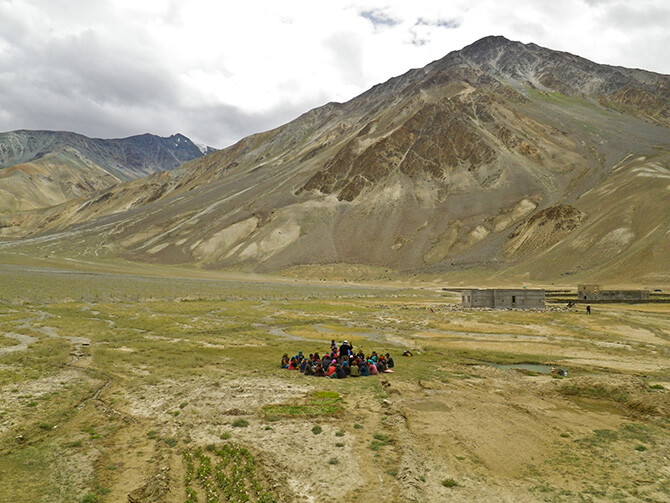
You see, water is scarce there and working the land requires many of their own. Both can only be achieved through cooperation. When cooperation breaks and conflict happens, the instigators face ‘social imprisonment’. They are ignored by the rest of the members and the instigators’ lives become solitary, in a place where the nearest pile of civilization is 257 km (160 miles) away, and can only be accessed with a jeep for only a half a year as the rest of the year is covered by snow. This social imprisonment is so powerful that no one wants to be in such a position. If they do not want to help with the agriculture or share water, they are threatening the survival of the entire community and the community reacts like an immune system.
They very rarely face such issues because of the tremendous force, not written, but felt, that governs their community. You can read more about them here.
Laws are the means through which ‘civilized’ (that’s what some say) societies tried for thousands of years to keep themselves under control (be it for ‘good’ or ‘bad’ reasons). But trying to map and harness the power of social pressures with laws is like trying to map the stars in our galaxy with the naked eye and harness their solar power. Very inefficient, almost ridiculously so. Laws may make a few fear to break them, but as we showcased in our article on prisons and ‘morality and ethics’ their power is greatly limited and most of the small scale conflicts (in family, with friends, etc.), and perhaps even big scale conflicts, are solved inside the community/family and not by law, and ideally will be solved by technology as we will discuss near the end of the article.
Think of that community of people living on top of the mountain. If they had laws that did not matched the reality in which they lived in, then the laws would have been inefficient. If they would have said: “If one refuses to work, then he/she will be kept in a dark room for a period of time as a punishment” then the people may not have seen the ‘reason’ behind such a law and not be as pressured to respect it, but if they grew up with the notion that if they refuse to work, they hurt the community that they were part of, and there are some inherited laws (like social imprisonment/ignorance, and not punishment as in the ‘law’ sense) then one could better measure the consequences and understand the ‘reasoning’.
To put it another way, if you were to explain to your kids all of the things they are not allowed to do (don’t play with the dishes, don’t throw away the food, and so on) then you will have little success, but if the children grow up understanding that by playing with the dishes they may break them and that hurts the family financially, or that throwing away the food then they may not have what to eat, and all that will also cause their parents to be ‘upset’ at them (not talk to them, ignore them), then this will be more efficient as a social (familial) pressure that the children will learn to respect.

Therefore the fear behind social pressure must be one that matches the reality and it is inherited, not punishable by others, but self imposable. If I refuse to share water with people, I know that they will ignore me and I will become alone and with no help for the future, no support of any kind, and this will make me feel more powerfully the things that I will lose if I am not going to respect that ‘rule’. It will also make it hard for me to blame someone but myself, but if there will be a punishment for my behavior in the form of a law, then I may regard that as a ‘someone else’ that punishes me, which is the one that made the law and people who are supporting it, and it may make me feel like I am right, but the law is ‘wrong’. And all this may make the law very inefficient. Understand? I hope so.
So, if there will be a ‘fear’ factor when it comes to social pressure, then for it to be more efficient, its ‘reasoning’ and consequences must match the reality and be properly understood by the people.
In our societies people fear the same social imprisonment too: you can start to be ‘mean’ with your friends (not violent or breaking the law) but you know that you will lose them and this fear makes people modify/edit their behavior. In a documentary by Channel4, “The Secret Life of 4 Year Olds”, they looked closely at how 4 year olds interact with each others in a kindergarten, and one example is perfect to show how social pressure in the form of ‘fear’ influences the human behavior, almost similar with how scientists, although they can’t observe this ‘dark matter’, observe its effects on other cosmic objects. There was a 4 year old boy who was very mean with the other children (he was stealing the toys, food, and behave in a ‘rude’ manner) but after a while, because of his behavior, the other children started to ignore him and not play with him. The teachers were also reminding him many times to behave better with the other children because it is not nice to behave the way he did. But never punished him for his behavior.
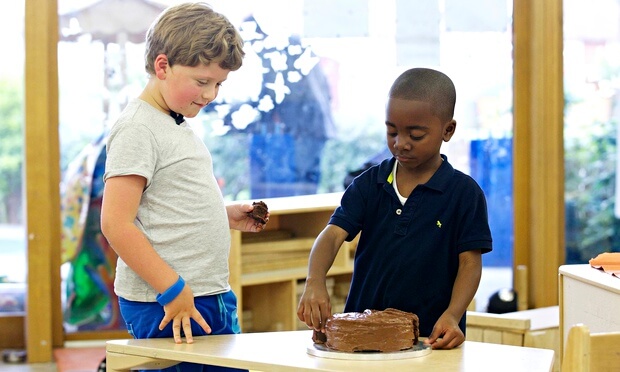
This entire pressure, being felt day by day, made this kid to start and behave more nicely towards the other children and seek for friendship at one point. You could clearly see him suffering for being alone. No punishment was applied for this kid, only the social imprisonment he felt because of his own behavior. No one he could blame for his behavior, no ‘enemies’ he could project a possible anger towards, he just felt alone and ‘fighting’ with no one but his own behavior. Realizing that improving his behavior results in better outcome (making friends for instance) he seemed to understand and control this better than a rule that might have punished him for the behavior he exhibited.
Politicians are very scared of such pressures and often they choose their words carefully to not upset the people, or else they may not get elected. ‘Mini-Gods’ (celebrities) are also pressured by their fans and their public appearances to behave in a certain way and only say a certain things. Even priests, parents, or other people in societal ‘functions’ will fear for losing their established position.
When the uncomfortable becomes very uncomfortable, the fear is felt.
The Uncomfortable:
If the husband of a loving wife, dies, and at the day of the funeral the wife cannot find her makeup tools to prepare for the funeral, she may get stressed over this, even though it is the funeral of her beloved husband. She doesn’t want to look ‘bad’ or ‘inappropriate’ even in such situations because that may make her feel uncomfortable.
A girl with a rare syndrome is sleeping even 2 weeks on a row, with occasional wake ups to go to the bathroom and eat. She is a teenager and, from what this documentary about her portrays, she seemed more concerned about not missing school or the prom than about her own health. One may wonder why she may seem more concerned about societal factors than her own health. If I were to have this syndrome, I would be very interested as to what is causing it, how it affects my health and what can I do to improve my situation. But even the girl’s parents looked more concerned that she may not be able to finish school than how this syndrome affects her health. Towards the end of the documentary she seemed more emotionally affected by her high school final grades than about the important medical results of her condition that she just received. As a side note, I am sure her parents are concerned about the girl’s disease, but they seemed far more emotionally touched/driven when it comes to society based and invented rules such as the one’s look, proms, or school grades, than about a real, health crippling condition.

In another documentary, a girl had another rare condition that made her look much older than she was. At 16 she looks like at 60. Face, teeth, indeed some internal organs, seem to be all affected by the disease. The interesting aspect is that, as shown in this documentary as well, the girl and the people around her, looked more concerned about the peer pressure, social pressure, than about the disease and its effect on the girl’s health. The girl, as she said, was mocked and ridiculed in school because of her looks, and that seemed to have affected her more than the disease itself. This was evident when she went for a very expensive and painful facial plastic surgery to ‘fix’ her, not health, but societal problem.
This all shows, I think, how, even if your life is on the edge or crippled by some sort of disease, many people are conforming to the tribe’s norms that they self subject to and get ruled by.
And these are not rare situations, we all feel uncomfortable by this kind of social pressure every single day. One may even be quite stressed that his hairstyle is not ‘ok’ in the same day when he finds out if he has cancer or not. Very few of us think of walking very slow on the street, just so we can piss other people off (because that may cause us trouble with the other people); or say nasty words to random people; dress in pink dresses if you are a guy; curse at no one while walking on public; dress backwards; lick trees, or whatever.
You can do many things in this world that are not punishable by any kind of law, yet you don’t because is either the social pressure (you are afraid of how others will see you or how they will react) or because it doesn’t even cross your mind to do these things.
I was once walking with a friend of mine and we saw a convertible car. We were young and from a tribe where you don’t see such cars very often. He laughed and said: “Ha! Such a stupid design. I bet many people pee in his car because it has no roof!” That looked like a good argument for both of us at that time :). But of course, this is not happening because no one will really thinks of doing that, even if some may do this, and it is not because of the fear of laws/consequences mainly, but just because it is not ‘right’ to behave this way or because of what other people might think of you if you are exhibiting such behaviors.
There are many psychological experiments done over the years that show even more clearly how this ‘force’ of social pressure is present in many cultures and in many different circumstances and ways. Watch this playlist to see some of these experiments:
[ytp_video source=”1-U6QTRTZSc”]
Think about it: the way people talk, walk, what they wear, what they like or don’t like, is very much influenced by the social pressure. No law tells you to not wear a dress if you are a guy, yet you don’t wear one even if you may like it, because you are afraid of how others will see you. You will feel uncomfortable.
The Unnecessary:
But this state created by the social pressure doesn’t have to be one of ‘fear’ and discomfort, but one of feeling ‘right’ to not behave a certain way. Meaning, a scientist may not destroy important fossils because he may understand the importance of them, even in a situation in which he will not face any legal repercussions. He understands, based on his culture, that it is not ‘right’ to behave in a certain way and he can be influenced by that even in situations in which he doesn’t feel any kind of fear or be uncomfortable about his decision.

I can take all the money from TVP Magazine donation campaign, not share any with Ray, and run away with them without making any TVP Magazine issue :). Since perhaps no one knows where I live or who I really am, and I signed no contract that forces me to use the money for this magazine, I would probably face absolutely no fear or state of discomfort by doing this (no one can contact me to make me feel bad about my decision). But I can’t do this because I feel it is not ‘right’. There is no law or punishment or state of discomfort that something/or others can put on me, but still, I am behaving ‘properly’. And that is solely because this is how I feel is ‘right’ and that state of feeling is created by the environment I was exposed to. Thus, I feel it as unnecessary to do this.
BUT IT CAN BE BEND OR BROKEN OR IT CAN VANISH
If you were to give to the people from the top of the mountain as much water as needed and food, without them being forced to work to obtain them, then the social pressure on behavior that gravitated around those needs will vanish as no one can be punished for not sharing the water since there will be no need for sharing it.
If the dishes are unbreakable, children can play with them and no social pressure will be needed to make them change their behavior in regards to that as they can’t break the dishes.
If that 4 year old child had access to all the toys and foods he wanted, then he would probably not have seen the point in stealing any toy or food and so his behavior towards the other kids would perhaps be very different.
If people would have been educated about what ‘beauty’ is or even what ‘social pressure’ is, then perhaps less will see the need to modify their appearance or behavior because of other’s opinions or put their appearance first and health second.
If I were to starve to death and would need the money from TVP Magazine that also belongs to Ray, then maybe I will be forced to take all the money to save my life. On the other hand if I were to live in a TVP like society where we would need no money to cover our basic needs (to keep us alive) as they will be meet, then the entire dilemma/situation around this issue would disappear completely (no one would even wonder if I were to do such a thing).

When the fear created by social pressure is exceeded by other means (like being in a position where you life is threatened by, let’s say, lack of food), when environmental factors (climate change, poverty, etc.) are more uncomfortable than social pressure, and when you don’t see it ‘right’ anymore (education, changing values) to behave in a way that society values as ‘right’, then social pressure can break, bend or vanish in certain circumstances.
But I find it hard to think that social pressure will ever be eliminated as it is an effect of the contrast between social norms (culture and the society) and individuals. If in a society there is normal to share for free all the goods and services, then the social pressure will be felt by those who may think of not sharing. Not all will feel the same effects and in the same way, but we are all, in a way or another, no matter of the culture and society, affected by the social pressure, this invisible force that shapes our behavior, and we shape society because of it, and society influences us, and this loop is a constant one.
But hold on, I have talked about social pressure as if it is a ‘something thing’ although I must admit I do not understand what it is properly either, only see its effects, and let me explain why it may not even be a ‘something’ but a ‘something else’.
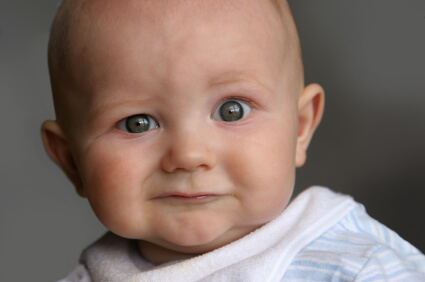
Dark matter is, probably, not ‘matter’. At least not something we recognize as matter. Scientists have literally no clue of what this is, but it certainly is something. Maybe gravity is not properly understood and this dark matter doesn’t even exist, and is something beyond it and the gravity. It is still a mystery, a complex one to solve for us, humans.
Social pressure may be the same. Perhaps we are just observing some effects of the environmental influences on human behavior and we choose to call some behaviors as as social pressure influenced, some scarcity driven, some emotional, and so on, and they all might not even be relevant categorized as such. I do not know, I must admit, because this might be more complicated than the dark matter itself, but as in the case of the dark matter, there is definitely something there as we see ‘its’ effects, a ‘force’ that makes most people behave in a way that does not break the social norms that often and this ‘force’ seems to keep a society more alike, more uniform, more robust, whatever this society might be.
This whole thing might be explained by rewards and punishments in regards to behavior. When you give food to a pigeon who turns its head left, and you do that many times, then the pigeon associates the head movement with the reward. Perhaps people associate rewards in how people behave to them with other kinds of behaviors that they themselves exhibit. If one sees that by drinking alcohol and being a bully he is admired by his peers, then he might continue that behavior for the peer reward factor. In another sense, of one sees that when she brings religion into discussion when she is with her friends, it makes her friends uncomfortable and they even try to ignore her, then she might end up by not discussing religion with her friends.
Therefore, this thing that we may call as social pressure, if we can define it properly, should then be regarded not as a ‘bad’ or a ‘good’ influence, but an influence, a powerful one. The saner the society, the more positive outcomes such influence will have.
To harness its powers for a progressive and saner future you should create an environment in which people are scientific enough to have a basic understanding of the world the live in, human behavior, technology and semantics. Also, without an environment of abundance (goods and access), meaning an infrastructure that can keep a society saner, this ‘social pressure’ will be perhaps more harmful and many times non effective as people will steal, become violent, and create all sorts of issues when their needs are not meet, regardless of how powerful the social pressure will be.
In a TVP like society people will feel right to not steal or take advantage of others; they will feel right to share with people, cooperate, help the others and the society. It may feel hard to imagine that such a world can work without police or laws, but couple the TVP infrastructure with social pressure and I think we might see it being a realistic view of the future.
Language is very inefficient when trying to explain such a complex subject and I can only hope you understood this article. I highly recommend you the article we did on Reason and Logic and one about values (The TVP Vaccine) to try and see how it connects with this one.
NOTE: This article was written by me for TVP Magazine but was not accepted by Jacque and Roxanne as they said it has many assumptions, and I agree it has some, but I also think that you cannot avoid this when talking about human behavior. Anyway, I think it is an important article at least to make you think about social pressure and what, if any, importance it has. 😉
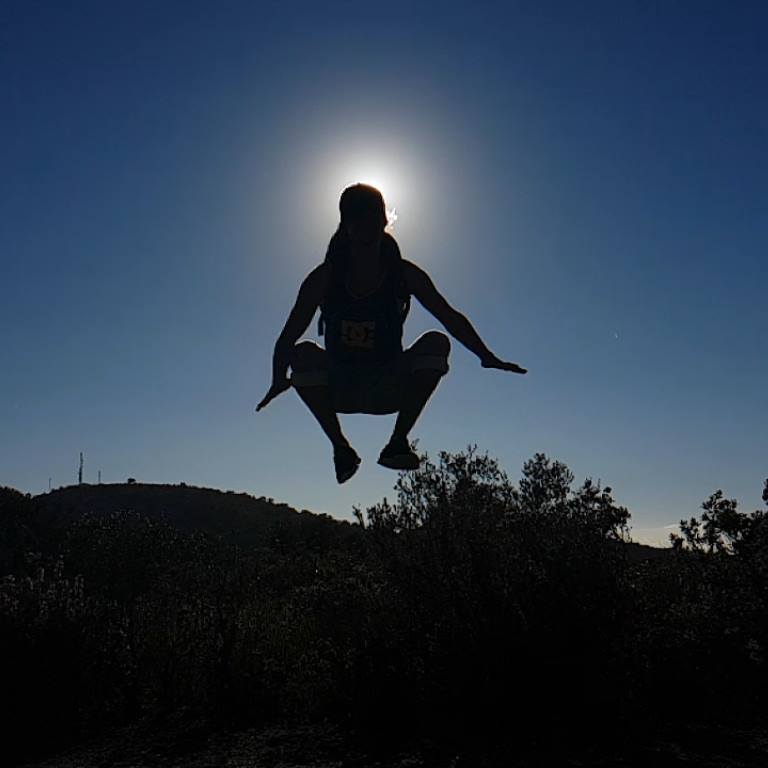

3 Replies to “Social Pressure”
help me out here, advise me how to transform a kid to the type u want without societal pressure or conformity. if the kid is forced to do, he will try repel, but still folow coz he no other choice, but wont continue doing so when the enforcement is no more threat. he wud still continue if his environment is giving reward or pressure to continue the behaviour. Say the environment is neutral on this, or this situation is in closed environment. fresco said “dnt teach ur kids… giv them a reason to want to do”. can u lighten me up on how to giv people especialy adults a reason to want to question the what why hows instead of just conforming, its almost imporsible to change people to think, my sucess rate is only 10%. even that is only becoz i tell too much compare to the oters, spending that much time just to teach a person is almost waste. if we just say, well spread the word in internet, and those that are receptive will and those wont wudnt anyway, then there can never be a venus project or alike as the rate of dummyfying or conforming will always far outweigh. seeing what the world wants to see most is a guy just screaming as he spent his day (and that too is more advance part of world- internet users). atlest top watched chanels were watchable sometime ago. as predicted the avg iq does get lower by the year. so unless we know some good mental trick of convincing,as said long before “you are not dealing with creatures of logic” there doesnt seem to be a tvp or alikes coming in our lifetime. jst hoping for a big crash, i think people will jst re-elect new leader, and think they gona be beter. i dnt even think the growth rate of tvp (convinced ones) vs growth rate of the yutube gamer (subscriber) per current people folowing is higher despite the utube one is already at such high number. u kno what i mean if 1 person folo crowd of 3 that is big adition compare to 5 new folowing crowd of 20
I think it depends from case to case, I can’t tell you a thing about what you can do unfortunately. You have to understand how to approach s/he. When it comes to changing people almost nothing worked for me trying to change other people, because those ‘other’ people need to have that reinforcement environment. You can make people ‘curious’ about astronomy (even though it will be a huge challenge), but to keep their curiosity and enthusiasm you have to provide an environment to keep them as such: buy them a telescope, put them in an environment where others like astronomy, give them easy access to astronomical materials (videos, articles, photos), and so on.
I will try to address this subject in detail in TVP Magazine in the near future, so stay tuned for that, as I will research the topic more and more.
But keep in mind that you don’t have to change all the people to accept TVP, you need a small percentage that are able to put TVP into practice and that also can educate others.